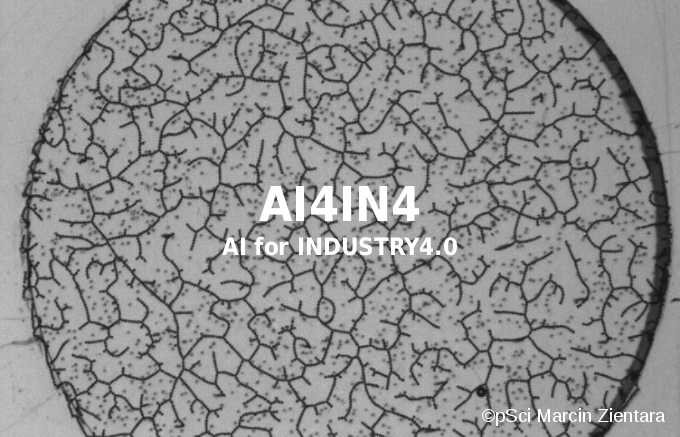The aim of the AI4IN4 Project
An application of Artificial Intelligence methods for Industry 4.0 are an aim of the Project. The developed solutions:
- The Vehicle Routing Problem and Algorithm
- The Job Shop Scheduling Problem and Algorithm
Vehicle Routing Algorithm
The Vehicle Routing Algorithm (VRA) is a set of original programming libraries that uses the genetic algorithm to optimize the transport network in the N-warehouse, K-recipient and M – transport modes. The Algorithm resolves the Vehicle Routing Problem in practice. As a result of the operation, the algorithm calculates the optimal routes network (the number of cars with the right parameters) necessary for the effective and temporary delivery of goods from warehouses to recipients. The VRA can be used both: for current route planning in static or dynamic mode as well as for strategic analyzes related, for example, to the placement of warehouses and the number of necessary warehouses. Thanks to the development of the original way of recording route information in the chromosomes of the genetic algorithm, the entire network of links is simultaneously analyzed (warehouses – recipients – cars – delivery characteristics), and not independently the individual subsequent elements of this structure. This approach allows you to get the maximum efficiency at a minimum cost. Depending on the adopted optimization criteria, the Algorithm allows to reduce the total length of routs by a 10% order or to obtain 100% delivery time. The functionality of the VRA perfectly matches the concepts of Industry 4.0 and ecological transport.
The present functionality of the VRA includes:
- VRPTW
- CVRPTW
- MDVRP and optimal location of depots
- DCVRP
- optimal number of cars
Other functionality can be implemented by a modification of the objective function.
The algorithm was developed by pSci. More information can be found here.
A sample of solution:
The video shows an example of optimization of a simple supply network. The parameters of the optimization start are: 5 – depots (blue pins), 19 – recipients (red pins, next numbers on the pines indicate the next recipients on the road) and 10 – cars. Zero population generated by the greedy-random algorithm (developed by pSci) reduced the number of cars / routes to 7.
Focus on the one of depots:
Job Shop Scheduling Algorithm
The Job Shop Scheduling Algorithm (JSSA) is a set of original programming libraries that uses the genetic algorithm to optimize the production tasks series – it performs APS functions. It solves the problem of arranging and optimizing of the order queue for a system consisting of: N – executive stations, K – technological lines composed of the above-mentioned N stations, M – resource groups serving the above-mentioned N stations and L – SKU units implemented on K lines.As a result of the action, the Algorithm calculates the optimal precise plan of order execution, which contains detailed time schedules of all orders for all individual executive stations with the necessary resources assigned to their implementation – solves the problem of Job Shop Scheduling for a given production system. The Algorithm can be used both for current planning work and for simulation of plans to identify bottlenecks, the degree of utilization of production lines, providing information on current production capacity, etc. Thanks to the development of an original way of recording information about production plans in the genetic algorithm chromosomes, the analysis is simultaneously performed for entire network of connections in the production system and not individual for subsequent elements of this structure. This approach allows you to get the maximum efficiency at the minimum cost. The JSSA functionality fits perfectly into the concept of Industry 4.0 and the Smart Factory.
The algorithm was developed by pSci. More information can be found here.



